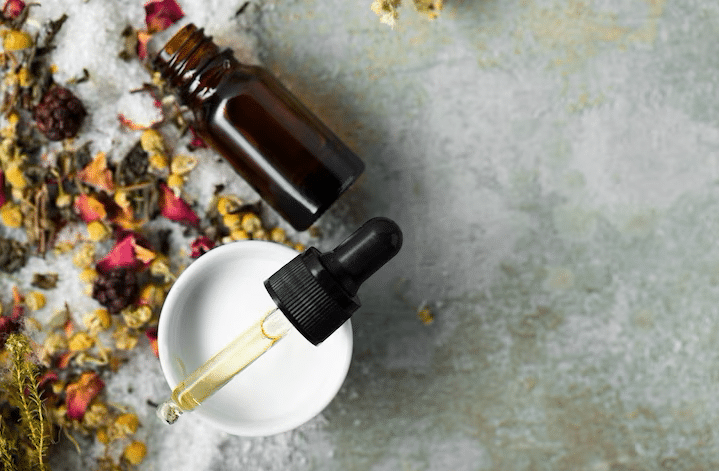The Power of Plants: A Comprehensive Guide to Essential Oils and Their Health Benefits
Are you looking for natural remedies to improve your health and well-being? Look no further than essential oils! These plant-based oils have been used for thousands of years for their therapeutic properties, and today they are more popular than ever.
In this comprehensive guide, we'll take a closer look at essential oils and their health benefits. From their historical use to their modern applications, we'll cover everything you need to know to get started with these powerful plant extracts.
What Are Essential Oils?
Essential oils are concentrated plant extracts that are obtained through steam distillation or cold pressing. They are highly aromatic and contain the natural scent and flavor of the plant from which they are derived.
These oils are made up of hundreds of different chemical compounds, each with their unique therapeutic properties. They are used in a variety of ways, including aromatherapy, topical application, and ingestion.
Historical Use of Essential Oils
Essential oils have a long history of use in traditional medicine systems, including Ayurveda, Traditional Chinese Medicine, and Ancient Egyptian medicine. They were used for their medicinal and spiritual properties, as well as for perfumes, cosmetics, and food flavoring.
For example, frankincense oil was used by the Ancient Egyptians in their religious ceremonies, while tea tree oil was used by Australian Aboriginals for its antiseptic properties.
Modern Applications of Essential Oils
Today, essential oils are used in many ways to support health and wellness. They are commonly used in aromatherapy, where they are diffused or inhaled to promote relaxation, improve mood, and alleviate stress.
They are also used topically, either in pure form or diluted with a carrier oil, to support skin health and address a variety of health concerns. Additionally, some essential oils can be ingested, either in capsule form or by adding them to food or beverages.
Let’s take a closer look at the specific health benefits of essential oils and how they can support your overall well-being.
Headache Relief
Do you suffer from headaches or migraines? Essential oils like peppermint, lavender, and eucalyptus can provide relief. Peppermint oil has a cooling effect that can help soothe tension headaches, while lavender oil is known for its calming properties and can alleviate migraine symptoms.
Anxiety and Stress Reduction
Feeling anxious or stressed? Essential oils like lavender, bergamot, and chamomile can help calm your nerves and promote relaxation. Bergamot oil is particularly effective for reducing anxiety, while chamomile oil is known for its calming and sedative effects.
Colds and Flu Relief
When cold and flu season hits, essential oils like tea tree, eucalyptus, and peppermint can help alleviate symptoms. Tea tree oil has antimicrobial properties that can help fight off viruses and bacteria, while eucalyptus oil can help clear nasal congestion. Peppermint oil can also provide relief for sore throats and coughs.
Skin Care Support
Many essential oils have benefits for skin health, including tea tree, lavender, and frankincense oils. Tea tree oil is known for its antibacterial and anti-inflammatory properties, making it effective for treating acne and other skin irritations. Lavender oil can help soothe and heal damaged skin, while frankincense oil can help reduce the appearance of fine lines and wrinkles.
By incorporating these powerful plant extracts into your daily routine, you can support your overall health and well-being naturally. In the next section, we'll discuss how to use essential oils safely and effectively.
Dilution
It's important to remember that essential oils are highly concentrated and should never be used undiluted on the skin. Diluting essential oils with a carrier oil like jojoba, almond, or coconut oil can help prevent skin irritation and make them safer to use.
The typical dilution ratio is 1-2 drops of essential oil per teaspoon of carrier oil for topical use. For children and those with sensitive skin, a lower dilution ratio may be necessary.
Application Methods
There are several ways to use essential oils, including aromatherapy, topical application, and ingestion. Aromatherapy involves diffusing the oils into the air or inhaling them directly from the bottle. The topical application involves applying diluted essential oils to the skin, while ingestion involves adding them to food or beverages or taking them in capsule form.
Not all essential oils are safe for ingestion, so it's important to do your research and consult with a healthcare professional before using them in this way.
Choosing High-Quality Oils
When it comes to essential oils, quality matters. Look for oils that are 100% pure and organic, with no additives or synthetic fragrances. Check the label for the Latin name of the plant, as well as information about the country of origin, method of extraction, and batch number.
It's also important to choose oils from reputable brands that prioritize sustainability and ethical sourcing practices.
In this comprehensive guide to essential oils, we've explored the many health benefits of these powerful plant extracts and how to use them safely and effectively. By incorporating essential oils into your daily routine, you can support your overall health and well-being naturally.
Conclusion
Remember to always dilute essential oils, choose high-quality oils, and consult with a healthcare professional if you have any concerns or questions. With a little knowledge and experimentation, you can discover the power of plants and enjoy the many benefits of essential oils.
All Image Attribute - with thanks www.freepik.com

